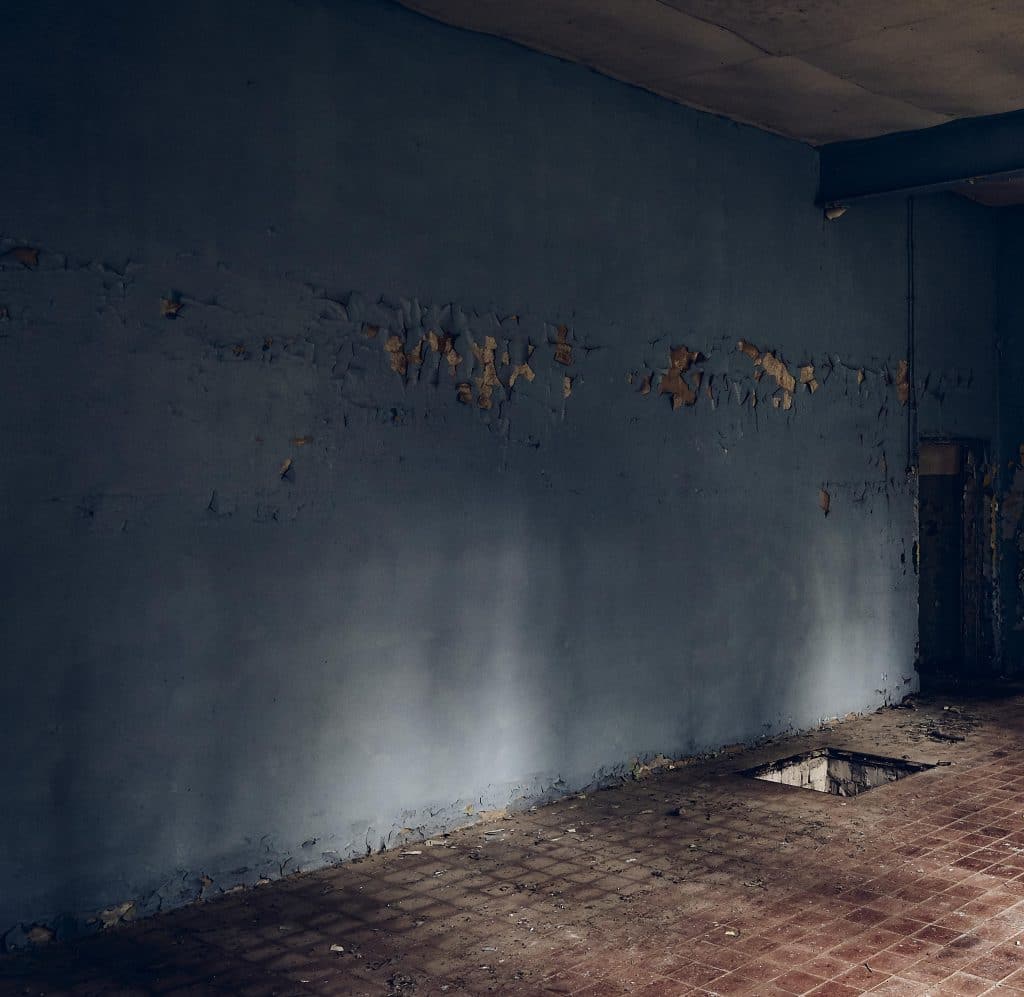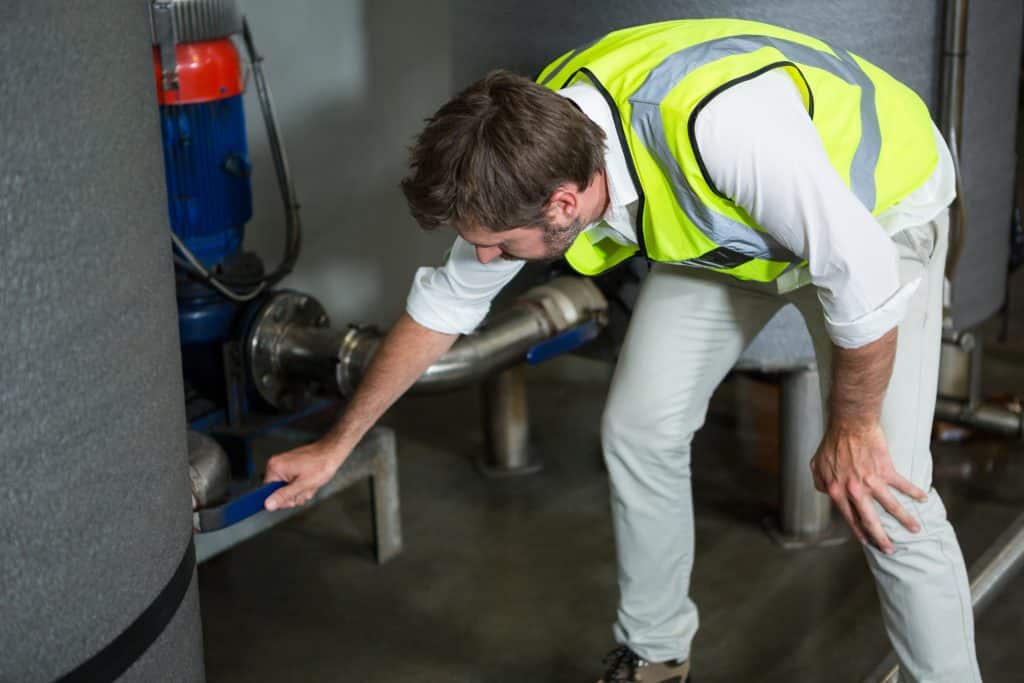Contents
Concrete block walls are a staple in many homes, but their porous nature often leads to leaky basement repair. The blocks, typically made of cinder or concrete, are held together with mortar, which can degrade over time. This degradation, coupled with the blocks’ inherent porosity, makes them susceptible to water infiltration.
Leakage in concrete block walls often manifests as damp spots or efflorescence, a white, powdery residue left by evaporated water. The most common cause of these leaks is hydrostatic pressure from the soil surrounding the basement. When the soil becomes saturated, it exerts pressure on the basement walls, pushing water through any weak points.
Addressing leaks in concrete block walls requires a two-pronged approach. Firstly, for minor cracks or deteriorating mortar, hydraulic cement is an effective solution. This material expands as it dries, filling in cracks and voids, thus creating a waterproof seal.
According to a reputable waterproofing company, for more extensive damage or leaks, external waterproofing methods are recommended. They include applying a waterproof coating or membrane. It’s also crucial to ensure proper exterior drainage to reduce hydrostatic pressure against the walls.
Regular maintenance and early detection of issues are very important for your basement. You should inspect the basement walls periodically for signs of moisture. Address any concerns promptly to prevent more significant problems!
Recognizing and Repairing Cracks
Unlike block walls, these are formed by pouring concrete into a mold, creating a solid, uniform structure. However, this solidity doesn’t make them impervious to cracks, which are often the primary culprits in water leakage.
Cracks in poured concrete can result from various factors, such as house settling, changes in temperature, or even the pressure exerted by the surrounding soil. These cracks might appear minor at first but can widen over time, allowing water to seep through.
The leaky basement repair process for these cracks is distinct from that of block walls. The most effective method is to use epoxy or polyurethane injections. These materials, when injected into the cracks, not only seal them but also bond with the concrete, restoring some of the wall’s original strength.
Main Causes of Basement Cracks
For larger cracks or more severe damage, it may be necessary to consult a Willfix professional team for a more comprehensive repair strategy. Additionally, homeowners should ensure proper external drainage and consider installing a sump pump or French drain system to mitigate the hydrostatic pressure on the walls.
- Formation — the process of creating a poured concrete wall involves pouring concrete into a mold, resulting in a solid, continuous structure;
- House settling — this refers to the gradual sinking or shifting of a house over time, which can exert stress on the foundation and cause cracks in concrete walls;
- Temperature changes — fluctuations in temperature can cause concrete to expand and contract, potentially leading to the formation of cracks;
- Soil pressure — the pressure exerted by the surrounding soil, especially when it becomes saturated with water, can push against the foundation walls and contribute to cracking;
- Polyurethane injections — a repair method where epoxy or polyurethane resin is injected into cracks in the concrete to seal and strengthen the affected area;
- External drainage — implementing proper drainage solutions around the foundation to alleviate the pressure exerted by saturated soil;
- Regular inspections — conducting periodic checks of the foundation to identify and address minor cracks before they evolve into significant leakage problems.
As with any foundation type, a properly done basement underpinning, regular inspections, and timely repairs are key to ensuring that minor problems don’t develop into major ones.
Identifying and Addressing Leaks
Stone foundation walls are a characteristic of older buildings, lending a distinctive aesthetic appeal. However, their beauty comes with a susceptibility to leaky basement repair, primarily due to the aging process of their construction materials.
These walls are built using a variety of natural stones, which are bound together with mortar. Over time, this mortar can deteriorate, creating gaps between the stones and making them prone to water infiltration.

The primary challenge in maintaining stone foundations is managing the deterioration of the mortar. As the mortar erodes, it leaves room for water to seep in, either through these newly formed gaps or through the stones themselves, which can be porous. This water infiltration compromises the structural integrity of the wall and lead to damp conditions in the basement.
Addressing leaks in stone foundation walls typically involves repointing, a process where the old, eroded mortar is removed and replaced with new mortar. In some cases, applying a waterproof coating over the stone wall can provide an additional defense against moisture, especially in areas prone to heavy rainfall or flooding.
Regular check and maintain stone foundation walls. Homeowners should periodically inspect these walls for any signs of moisture or mortar deterioration. Early detection and timely repairs are important for preventing minor issues from escalating into major problems.
Managing Moisture and Ensuring Stability
Brick foundation walls add a timeless charm to any structure. However, their beauty comes with a susceptibility to moisture-related issues, demanding diligent maintenance and repair.
- Construction and composition — brick foundations are constructed using individual bricks and mortar. The materials used in these walls, particularly in older buildings, can be porous and prone to water absorption;
- Common challenges — the primary challenge with brick foundations is moisture infiltration. This can occur due to the porosity of the bricks, degradation of mortar, or inadequate external drainage;
- Deterioration over time — over the years, both the bricks and the mortar can deteriorate, leading to gaps and cracks that allow water to seep into the basement;
- Repair techniques — tuckpointing is the main repair technique, involving the removal of old mortar and its replacement with new. In some cases, applying a waterproof sealant or membrane externally provides added protection. It goes without saying that this method would bring more benefits in a set of waterproofing measures;
- Preventative measures — regular maintenance, such as proper drainage and timely repairs, is for the longevity of brick foundation walls.

Brick foundations, while vulnerable to moisture, can remain sturdy and effective with proper care. Regular inspections and prompt repairs preserve the integrity and aesthetic appeal of these classic structures.
Conclusion
Understanding your foundation type and employing the right repair strategies according to building codes of your area can save you from costly leaky basement repair in the future. Keep your basement dry and your foundation strong with these expert tips.
Remember, the health of your basement is integral to the overall well-being of your home. By staying vigilant and proactive in repair and maintenance, you can ensure that your foundation remains solid and leak-free for years to come, preserving the safety, comfort, and value of your home.
Leaky Basement Repair FAQ
-
What measures can I take to prevent mortar failure and water infiltration in masonry foundations?
It is necessary to protect and reinforce the mortar and waterproof the foundation.
-
How often should I inspect your basement walls, and what should I do if there are signs of moisture?
If possible, try to inspect the basement walls regularly. If signs of moisture are detected, the problem should be corrected immediately.
-
Are there any peculiarities of stone foundation walls of old buildings, and what problems can they cause?
The stone foundation walls of old buildings are attractive, and to keep them so, they require special attention due to the aging of the materials.
-
Which steps should I take to maintain the health of my home's basement?
To make your basement serve you timelessly and keep it leak-free, you need regular repairs and maintenance.
